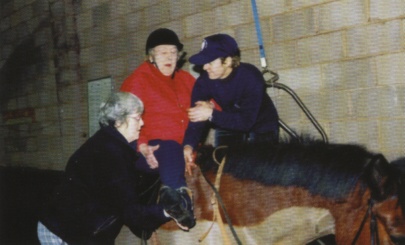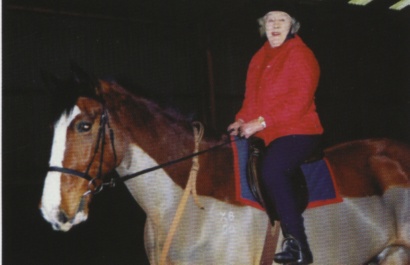The
Work of RDA at Holme Lacy Centre
The
policy of Riding and Driving for the Disabled is to provide facilities for
disabled people of all ages and abilities, to enable them to benefit from
equestrian activities. It has been shown that riding and driving can help many
disabled people who have been unable to make progress in any other way. The
brief is broad and some of the facets include :
Recreational
riding/driving
Therapeutic
riding
Competition
riding/driving
Vaulting
Hippotherapy
Riding
session are organised so that the particular needs of each client can be met.
Those needs are initially assessed in conjunction with the doctors and
physiotherapists letters of recommendation and with the assistance of the
teacher, social worker and parent as applicable.
Short
and long term goals are established and progress towards those goals is
monitored and recorded. Goals are reviewed and updated on a regular basis. Each
rider is weighed and assessed for mounting and dismounting needs and a riding
session is selected based on the overall assessed needs.
Riding
is a very physical activity - just to stay in balance on a walking horse
requires some 1000 random muscle movements in every ten minute period. Further,
research has proved that the movement of a horses walk mirrors most closely the
sensation and activity of a humans walk. It is, however, a requirement that the
rider be capable of understanding and responding to verbal or physical requests
so that the horse is not unintentionally abused: e.g. by the body being thrown
backwards or pinching or thumbing of the animal.
In
therapeutic riding, the movement of the horse is combined with co-ordination
exercises such as learning to steer or to trot. Language and number teaching
become a natural part of the lesson in addition to learning about team work by
having to co-operate with instructors, helpers and teachers. Therefore work
towards key skills i.e. application of number, problem solving etc, is
constantly covered.
 As
riders become more competent then it may be possible for them to enter
competitions which have been specially structured by the R.D.A. for the purpose.
Proficiency Test syllabus' includes subjects on horse management as well as the
riding itself. National Vocational Qualifications in horse care are also
relevant and available for assessment at Holme Lacy Centre.
As
riders become more competent then it may be possible for them to enter
competitions which have been specially structured by the R.D.A. for the purpose.
Proficiency Test syllabus' includes subjects on horse management as well as the
riding itself. National Vocational Qualifications in horse care are also
relevant and available for assessment at Holme Lacy Centre.
Vaulting is a team sport which helps develop group co-operation in addition to high levels of physical activity and advanced co-ordination. Unfortunately at present this resource is not available at Holme Lacy Centre. Hippotherapy is only available from specially trained physiotherapist and is usually provided for small children. Carriage Driving not only enables the severely immobile clients to learn new skills, but also to gain vital self confidence. These sessions take place twice a week at the Centre. Riding is therefore appropriate for a wide range of abilities and disabilities. By creating groups of people with similar needs and abilities the greatest benefit can be obtained by each rider, and the results over a number of years have shown that the benefits have been substantial and sustained in other areas and walks of life.